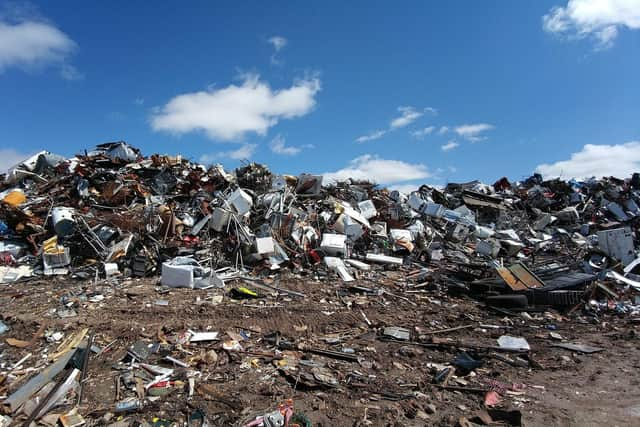Climate change: Falkirk Council partners up to find solution to municipal waste issue
and live on Freeview channel 276
With the Scottish Government telling all councils to ban sending its waste to landfill by the end of December 2025, Falkirk is working with surrounding councils - Stirling, Clackmannanshire, and Perth and Kinross - on finding a solution that could secure access to an Energy Recovery Facility which would see non-recyclable waste burned at high temperatures under carefully controlled conditions.
A joint tender is currently being worked up ahead of an expected contract award in October 2022.
Advertisement
Hide AdAdvertisement
Hide AdThe Scottish Government has committed financial support for the joint procurement exercise which will incorporate the setting up of an expert team of technical, procurement and legal specialists to oversee the production of the joint tender.


The new Earls Gate Energy Centre in Grangemouth is a facility which may be in the running for the contract.
The plant is expected to be fully operational in mid-2022, creating around 30 operational jobs which will be full-time, permanent positions.
When the £210 million Earls Gate Energy Centre does become operational it is hoped it will prevent 216,000 tonnes of household and commercial waste from entering landfill annually.
Advertisement
Hide AdAdvertisement
Hide AdIt will also provide heat and power for nearby CalaChem and adjacent industrial plants, and export any surplus electricity produced to the National Grid.
A spokesperson for Falkirk Council said: “We, along with every other council in Scotland are subject to a ban on residual waste going to landfill by the end of 2025 announced by Scottish Government in line with meeting their national waste targets.
"One type of method of treating this waste is by using energy recovery facilities that safely burn waste at very high temperatures with any emissions controlled to meet environmental standards.
“These facilities are already in use across the UK and are regulated by environmental agencies such as SEPA.
Advertisement
Hide AdAdvertisement
Hide Ad“The advantages of the process can be: less disposal of waste to landfill; lower landfill costs to the council; generation of low-cost electricity; and recovery of materials such as minerals, ferrous and non-ferrous materials.
"Low-level discussions have taken place with a number of providers of this type of service however we will be bringing a detailed report for elected members forward later this year that will give more insight.”
